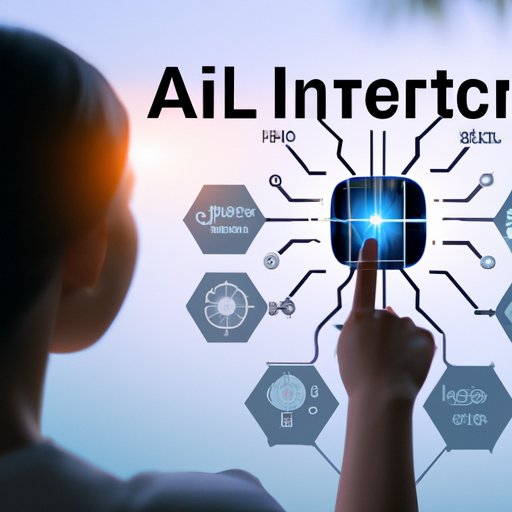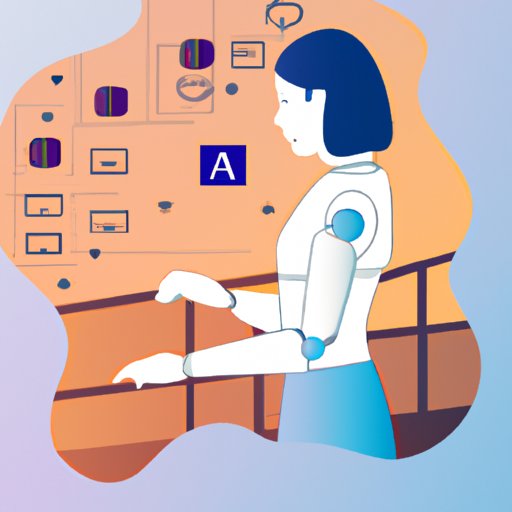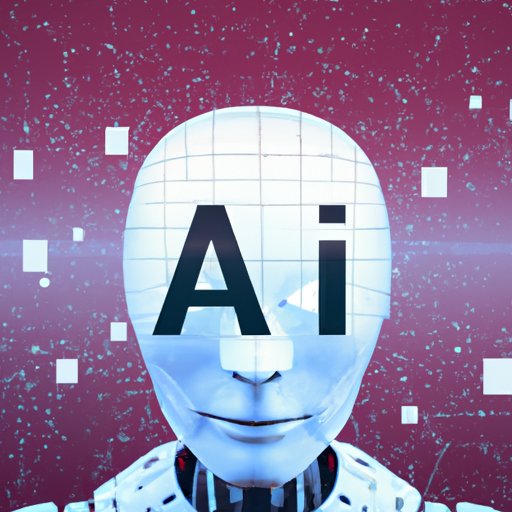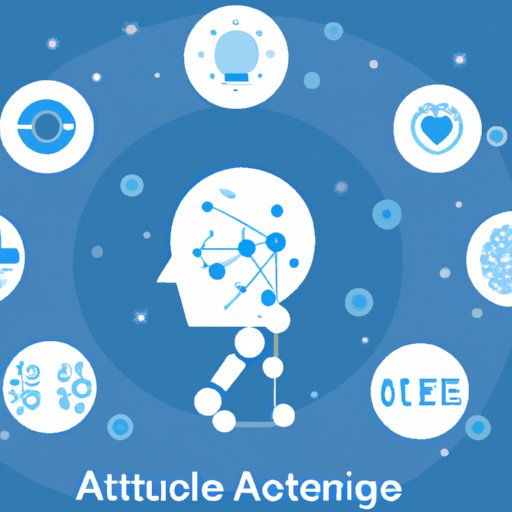
Examining the Potential of Artificial Intelligence: What AI Can Do Now and in the Future
Artificial intelligence (AI) is transforming our world—from how we interact with each other online to how businesses operate across industries. As AI continues to expand its capabilities and applications, it’s important to understand what AI can do now and what potential it holds for the future. In this article, we’ll explore the current and future potential of AI, its various applications, and the ethical implications of AI technology.

Overview of Current AI Capabilities
AI has already made its mark on the world. From facial recognition software to self-driving cars, AI is used every day in a variety of ways. According to a study by McKinsey Global Institute, “AI has the potential to create economic value of between $3.5 trillion and $5.8 trillion annually by 2030,” which is more than the combined GDP of Germany and Japan today. AI can be used to automate manual labor, analyze data, and improve customer experiences, among many other things.
The most common type of AI is machine learning, which is a subset of AI that enables computers to learn from data without being explicitly programmed. This type of AI is used for predictive analytics, such as forecasting sales or predicting customer behavior. Natural language processing (NLP) is another type of AI that allows computers to interpret and understand human language. NLP is used for tasks like automated customer service, automatic text summarization, and sentiment analysis.
The Potential of AI for the Future
The potential of AI is vast, and experts predict that its capabilities will continue to expand in the coming years. AI could be used to create smarter cities and optimize energy use, reduce traffic congestion, and improve public safety. AI could also be used to accelerate scientific discovery and drug development, allowing scientists to develop treatments for previously incurable diseases.
AI could also revolutionize the way people work. According to a study by Accenture, “AI could boost labor productivity by 40 percent and increase business profitability by an average of 38 percent.” AI could be used to automate mundane tasks, freeing up employees to focus on more complex, higher-value activities. AI could also be used to make better business decisions, leveraging data to identify opportunities and risks.
A Comprehensive Guide to Artificial Intelligence and Its Applications
To understand the potential of AI, it’s important to understand the various types of AI technologies and their uses. Here is a comprehensive guide to AI and its applications.
AI Technologies and Their Uses
AI technologies can be divided into two categories: supervised and unsupervised learning. Supervised learning involves training a machine learning algorithm using labeled data. This type of AI is used for tasks such as image classification, object detection, and natural language processing. Unsupervised learning involves training a machine learning algorithm using unlabeled data. This type of AI is used for tasks such as clustering, anomaly detection, and recommendation systems.
AI in Business, Education, and Healthcare
AI is being used in a variety of ways across different industries. In the business world, AI can be used for predictive analytics, automating mundane tasks, and improving customer experiences. In the education sector, AI can be used to personalize learning experiences and provide real-time feedback to students. In healthcare, AI can be used to diagnose diseases, assist in surgery, and track patient health data.
AI Use Cases in Everyday Life
AI is becoming increasingly prevalent in our everyday lives. AI can be used to automate mundane tasks, such as scheduling appointments or ordering groceries. AI can also be used to provide personalized recommendations, such as music or movie suggestions. In addition, AI can be used to improve customer service, providing automated support for customers.

Exploring the Practical Uses of Artificial Intelligence in Everyday Life
AI is becoming increasingly accessible, and its uses are growing rapidly. Here are three practical ways that AI is being used in everyday life.
AI at Home
AI is becoming more commonplace in the home. AI-powered home assistants, such as Amazon’s Alexa or Google’s Home, can be used to control lights, adjust thermostats, and play music. AI-powered robots, such as iRobot’s Roomba, can be used to clean floors and vacuum carpets. AI-powered cameras, such as Nest Cam, can be used to monitor the home and detect intruders.
AI on Mobile Devices
AI is also being used on mobile devices. AI-powered virtual assistants, such as Apple’s Siri or Microsoft’s Cortana, can be used to answer questions, set reminders, and perform other tasks. AI-powered photo editing apps, such as Adobe Lightroom, can be used to edit photos quickly and easily. AI-powered translation apps, such as Google Translate, can be used to translate languages in real time.
AI in the Workplace
AI is also being used in the workplace. AI-powered chatbots, such as IBM Watson, can be used to provide customer support. AI-powered project management tools, such as Monday.com, can be used to streamline processes and improve communication. AI-powered recruitment tools, such as HireVue, can be used to identify the best candidates for a job.
How Artificial Intelligence is Transforming Businesses and Industries
AI is transforming the way businesses operate across industries. Here are three ways AI is revolutionizing businesses and industries.
Automation and Productivity
AI is being used to automate mundane and repetitive tasks, freeing up employees to focus on more complex and higher-value activities. AI can also be used to optimize processes and improve productivity, enabling businesses to get more done in less time. For example, AI can be used to automate customer service tasks, such as responding to customer inquiries or resolving customer issues.
Enhancing Customer Experiences
AI is being used to enhance customer experiences. AI-powered chatbots can be used to provide customers with 24/7 support. AI-powered recommendation engines can be used to suggest products and services tailored to individual customers. AI-powered personalization engines can be used to deliver personalized content and offers to customers.
Leveraging Data for Growth
AI can be used to leverage data to drive growth. AI-powered analytics tools can be used to identify trends and insights from data. AI-powered forecasting tools can be used to predict future outcomes. AI-powered optimization tools can be used to identify the best strategies for growth.

The Ethical Implications of Artificial Intelligence: What We Need to Consider
As AI continues to expand its capabilities, it’s important to consider the ethical implications of AI technology. Here are three ethical considerations we need to keep in mind when developing AI.
Algorithmic Bias
AI algorithms are only as good as the data they are trained on. If the data is biased, the algorithms will be biased as well. Algorithmic bias can lead to unfair treatment of certain groups of people, so it’s important to ensure that AI algorithms are trained on unbiased data.
Privacy and Security Concerns
AI algorithms have access to large amounts of sensitive data. It’s important to ensure that this data is secure and that privacy laws are followed. Companies should also consider implementing measures to protect user data, such as encryption and access control.
The Impact on Jobs
AI is being used to automate many jobs, which can have a significant impact on employment. It’s important to consider the potential impact of automation on jobs and ensure that displaced workers are able to find new employment.
In conclusion, AI has immense potential, and its capabilities are expanding rapidly. AI can be used to automate mundane tasks, enhance customer experiences, and leverage data for growth. However, it’s important to consider the ethical implications of AI technology and ensure that AI algorithms are trained on unbiased data. With the right safeguards in place, AI can be used to benefit society and improve our lives.
(Note: Is this article not meeting your expectations? Do you have knowledge or insights to share? Unlock new opportunities and expand your reach by joining our authors team. Click Registration to join us and share your expertise with our readers.)
